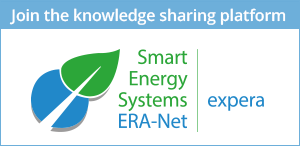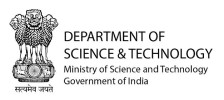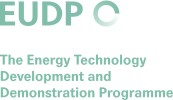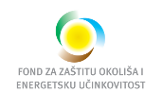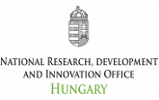Smart Power Grids
One of the major European challenges lies in creating a clean, secure and efficient energy system, while ensuring EU industrial leadership in low-carbon energy technologies. Accordingly, an upgrade of our energy networks - particularly the electricity network - towards a system of highly efficient, synergetic and flexible networks will be necessary matching current developments in production and consumption patterns as well as technologies. The main related challenges are: (1) enabling an increased flexibility of the power system to cope with the growing share of intermittent and decentralised renewable generation and managing the complex interactions; (2) increase network capacity to support increased flows resulting from renewables and the internal energy market; (3) provide information, services, market architectures and privacy guarantees to support open markets for energy products and services, whilst facilitating the active participation of customers. To meet these challenges cross-sectoral and interdisciplinary applied research, piloting and demonstration will be needed by a Europe-wide set of stakeholders.
ERA-Net Smart Energy Systems will further the integration of Smart Grids system technologies, stakeholder adoption and market processes to help Europe make progress towards achieving its short-term 2020, medium-term 2035 and long-term 2050 energy targets. For such progress cross sectoral and interdisciplinary system innovation is needed.
ERA-Net Smart Energy Systems will promote applied research, piloting and demonstration in the field of smart grids, with a focus on validation, scaling-up and replication, integrating the layers "technology”, "marketplace” and "adoption”, aiming at pushing solutions meeting TRL 5-6 to TRL 6-7.
The European Electricity Grids Initiative has over the last years successfully taken a leading role in developing European scale smart grid solutions, by bringing together key stakeholders and achieving critical mass. ERA-Net Smart Energy Systems will expand this European initiative by enhancing synergies between national Smart Grids programs, creating a coherent collaboration network that can further serve the Smart Grids European Research Area Network and beyond. It will coordinate additional national and regional RDD (Research, Development & Demonstration) budgets according to the implementation of the relevant European RDD agendas.
At the same time, a large number of grid operators exists in Europe (e.g. 5.000+ distribution operators on national and regional or local level) working under different environments. There is no "one size fits all” solution in the area of Smart Grids. More than 200 relevant Smart Grids RDD projects have been funded on a national and regional level in Europe. Yet, there is no sufficient mechanism in place to ensure coordination and cooperation between these projects. This fragmented landscape leads to significant barriers for replication as well as to inefficient allocation of funding and investments. It implies the risk that Smart Grids prototype, pilot or demonstration projects (even well-performing ones) remain isolated examples of action without achieving wider adoption at the European or even global level.
ERA-Net Smart Energy Systems will build on the already existing, national and regional key pilots, demo projects and facilities as well as the related investments by industry and the public (>2.500 Mio € ), by facilitating deep knowledge sharing in new transnational RDD projects and taking the next step in Smart Grids development while building on the existing demos. Through experiences in their demo projects the involved stakeholders have achieved a much better understanding of the new challenges and the implied opportunities. This creates a fertile environment for collaboration and experimentation. Additionally, an analysis in the former Smart Grids ERA-net has shown that the national/regional programs have had their peak in budgets in 2011/2012 and are delivering major results now.
ERA-Net Smart Energy Systems will organise both horizontal and vertical learning. Horizontal: Learning among Smart Grids RDD projects on the regional/national and transnational level. Vertical: Learning between these projects and the programming and European initiative level.
